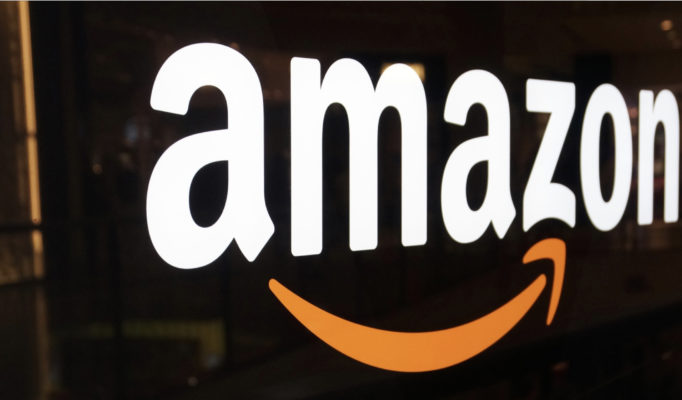A good friend of mine, a progressive who always makes me think (they used to be called liberals, but progressive sounds better, doesn’t it?) recently posted an article that bashed Jeff Bezos, the founder and head honcho of Amazon. If you don’t know what Amazon is other than a place in South America, well, I’m not sure that this article will be of use to you. But, I digress…
The article was clearly provocative in that it mentioned that Mr. Bezos, and others like him became 434 billion dollars richer during the pandemic. His problem is that the owners of companies, like Amazon, made quite a profit during the same period of time when others were forced out of work by the government while the curve was flattening and stay-at-home orders were implemented. How dare Bezos and others like him make a profit during a pandemic, was his position. It’s morally corrupt and simply not right that people like Mr. Bezos made that amount of money in total, while others lost their jobs. Fair profit (whatever that is – I’ve still not found a proper definition) is fine, but they crossed the line.
He and others, the argument goes, are raping the American pubic and becoming wealthy on the backs of labor and the American populace. Righteous indignation is the battle cry for those that wish to see people like Bezos vilified and forced to spread around their money to the workers, the workers, always the workers, they say. It is a cloak they wear proudly and display as a peacock displays their feathers.
Those that read Think31.com know that partisanship is not the thrust of what I post here, but rather attempt reasoned thinking based on historical principles. With that in mind, this article is presented as a counter factual, presenting the “other side” that many on the left may not think of as their moral indignation clouds their judgement. To be sure, they won’t even bother to read this for people on either extreme of the political spectrum rarely venture out of their comfort zones as I’ve written before, so for them, my words here will be wasted, but nonetheless, they are presented here.
Not only are Jeff Bezos and others like him not doing anything wrong, morally or otherwise, the argument here is..so what? He built his company famously from his garage, so why is it bad that he made a profit during any period?
Most forget that at one time, Amazon was almost broke and gone. It was during the dot.com bubble period of the late 1990’s. At it’s lowest, Amazon stock was around $5 a share and most thought it would go belly up. Mr. Bezos’ strategy of reinvesting profits to build name recognition was a gamble of the highest order. In fact, for five years, it lost revenue, again, almost going belly up during that period.
Eventually, his model won out though, making Amazon a household name as Zoom is doing now, and is one of the most powerful companies on the planet further bolstered by the “stay at home” economy induced by the pandemic. Fast delivery, diversified product offerings, cloud based solutions for business, and a significant presence in the streaming wars have made Amazon the most powerful player on the global market. Amazon’s not alone. Zoom, Microsoft, Walmart, Target, Costco, Home Depot, Zscaler, Shopify, and…Michael Jordan…yes, Michael Jordan, the billionaire, whose brand saw a significant boost due to the Last Dance documentary all saw increased revenue and profits during the pandemic, along with many others.
The point I’m making is that it was circumstances that contributed to the money made recently, money that he risked in creating a company that provides services that people want, and in some cases need. Don’t like Jeff Bezos and the money he’s making? I’d ask, first, why? Because he’s a billionaire and you’re not? Sorry, that smacks of jealously at the root…couched in the cloak of “for the people”.
Some of the richest people on earth became that way while they were doing the “people’s work”, like Fidel Castro, who died with some $800,000,000 in his personal fortune. He didn’t start Amazon or any other business, but did the “work of the people” while amassing his fortune. So, too, did Hugo Chavez (1 billion).
Kenya’s former president, Daniel Moi funneled some one billion dollars to his secret bank accounts from his Kenyan people, as did Nigeria’s former military dictator Ibrahim Babangida, who is today, one of Africa’s richest men, funneling some twelve billion to his accounts during the Gulf War. Kim Jung Un, Daniel Ortega, Alberto Fujimori (Peru), Teodoro Obiang (Equatorial New Guinea) are also part of this group, as are other so-called men of the people.
The point is that Mr. Bezos created something that others want and need through his business, with people either choosing to engage in a voluntary transaction, not being looted by a dictator and taking from his own people. You don’t like Amazon? Don’t use it, and Mr. Bezos will go under. He found a niche, as did many others who changed our lives for the better. Now, he should be punished for it, and his money taken? Ludicrous, at least for the time being in these United States.
Secondly, people like Mr. Bezos employ thousands upon thousands of people. Here are some interesting items regarding Amazon:
- Employment at Amazon went from 17,000 in 2007 to almost 800,000 in 2018 (statistics by Statista)
- Amazon pays, in Seattle, 45,000 employees an average of $110,000 per year. Of course, that amount varies by position and title. The average “warehouse associate” makes $29,000 per year. (According to Payscale.com)
- Amazon provides industry leading benefits for its workers. In many cases, much superior to other companies, although many are following it’s lead, such as Costco, among others.
I am not trying to defend Amazon per se, Mr. Bezos can do that himself, but to suggest that those that work for him or any of the other billionaires today are little more than sweatshop workers of the nineteenth century is not only wrong headed, but simply not true. Will you get filthy rich working for Amazon? That’s a loaded question. Invest well, be smart with your money, make sound financial decisions, and you may. However, the idea that Mr. Bezos and those like him are getting wealthier because he’s abusing workers in sweatshop type conditions is untrue. Again, you may not like that he’s made significant money during the pandemic, but he’s at the top of the pyramid, and when you’re at the top, you get the fruit.
Think for a moment…what would happen to the 800,000 workers that Amazon employs if someone were to shut them down? In fact, if we take all of the giants of corporate America and shut them down, where are the workers going to go? Remember U.S. Steel – when it went under entire towns went under also. We still lament the former steel towns now turned dinosaur skeletons scattered about the United States. Jobs gone, lives broken with little else to turn to. Remove big business and much more goes with it.
Taking it one step further, what do people think happens when large corporations make the sums of money that they do? If you don’t say reinvest in other businesses that employ thousands more workers, you’re deliberately looking the other way, like the child who refuses to eat their food. Corporate profits are also job creators, not just filling the pockets of the top people only.
Whether one likes it or not, a person has every right to get the benefit of their hard work, ideas, and skills at creating a business, at least in these United States. Jeff Bezos did just that, assuming all of the risk along the way, and is now reaping the rewards. For anyone to say that he doesn’t deserve what he’s earned presents a case that smacks of jealousy. Period.
There is not much complaining about Michael Jordan, a relatively new billionaire and his wealth. Similarly, not much is said about so many of the “Hollywood elite” whose salaries for films are upwards of fifteen to twenty million per film. The have a talent that others do not, and have found a way to capitalize off of it. Where is the outrage? They don’t employ people as businessmen such as Mr. Bezos and others like him do, so should we not be more outraged at that?
Since there is so much moral outrage about Mr. Bezos, let’s take half of the biggest Hollywood celebrities’ money and distribute it all over town, to the very needy people right at the very gates of their gated communities. Why does Mr. De Niro need $500,000,000 as a personal fortune? For that matter, why does Crissy Teigan need $23,000,000? The list can go on and on. By the way, the number of jobs either of those two people create are less than a fraction of what companies like Amazon create, if they create any at all.
Finally, and this is an argument that many progressives will not like, but the history of the minimum wage is checkered at best.
A forced minimum wage, historically, is a mixed bag, especially for small business owners. While the person at the receiving end of the minimum wage scale benefits, and might even spend their new money locally, the business owner, often a person who is doing a balancing act, finds that their revenue is cut, affecting the bottom line and hindering their opportunity to make money. Further, minimum wage has the effect of actually, in many cases, the opposite of what it was intended to do…it creates worker layoff and/or replacement. Dr. Thomas Sowell has spoken about this quite eloquently on numerous occasions.
We see this most clearly during the Great Depression when FDR raised the minimum wage in an attempt to help stimulate the economy. The effect was that business did comply, but in doing so, halved their workforce as they simply could not make a profit. This meant that more people were put out of work rather than put to work. (1)
Even when Mr. Bezos gives to charity, either through his own entity, or through pledges (recently announcing a two billion dollar effort to help homelessness and create a network of non-profit preschools), it isn’t enough for many on the left. Apparently, the thinking is that he should give most of his money away, with familiar tropes such as, “no one needs that much money”, or “there should be no billionaires”.
If that is going to be the refrain, what is the magic number then? How much is too much? Who gets to arbitrate that? Government? I’ve already shown that some of the worst offenders of greed are government officials. The philosopher class? What makes them better than the rest of us? In the end, it’s been proven more than once that even they will become corrupted by money and control.
Education is the key to this chase for economic equality. We already know that the more educated a person is, the more their salary will increase. This is not rocket science, or new news. Using Statista again, we can see that with more education, the less likely one is to be relegated to a minimum wage job…of which Mr. Bezos and others like him out pay.
What many in the mainstream media (or others like Vox, Mother Jones, Daily Beast) don’t want to tell you, or “right” sites like Breitbart and The Blaze exaggerate, are the benefits of these large corporations, benefits that impact their bottom line as well. On-site Child Care, on-site fitness centers, unlimited paid time off, free lunch, paternity leave are just some of those benefits that cost companies, but ones in which these companies provide as it helps retain the best workers. In the end, it is in their best interests to treat their workers well, as a happy worker is more productive in the long run, and the company is more stable.
But what about taxes? He, and others like him, don’t pay federal tax! That’s not right!
This is an interesting statement, but as with all things, there is much more to it than meets the eye. For fiscal year 2017, according to Forbes magazine, Amazon paid 1.18 billion in taxes, including state, local, and international taxes. Further, Amazon pays payroll taxes, and it’s employees also pay tax. This means that Amazon pays higher wages in order to offset the taxes paid by its employees.
Wait, there’s more. The federal tax code has about sixty pages in it that tell how to pay taxes, but over six thousand as to how to get around paying, meaning exemptions, etc. What this boils down to is that the Feds set up incentives to help businesses create, well, business. Amazon and others like it, simply take those incentives and run with them. People may not like it, but there’s nothing illegal about it at all, just as it’s not illegal to declare bankruptcy, take advantage of those laws and start again. There are exemptions for research and development (2) , Property, Plant, and Equipment development (3), and Employee Stock Benefits (4).
These incentives drive Amazon to reinvest in the cities it is located in, and without them, there would be much less incentive to do so, as well as shrink the business, an endeavor that creates hundreds of thousands of jobs. It sounds righteous and those targeting Bezos swell their chests as they’re standing up to the business behemoth, demanding justice from the all powerful god, when in reality, they simply fail to grasp business and ignore the significant benefits that are the result, not to mention the jobs created.
My guess is that those that do complain have never created jobs in the first place.
There is much more to this argument, but the fact is that in the end, it comes down to this; whether someone likes it or not, Jeff Bezos has every right to the compensation that he’s earned through his creation of, and nurturing of Amazon. Those bent on creating socialism may not like it, but it’s true. There has never been a greater creator of wealth than capitalism, and history proves this. This does not mean to say that there have not been problems, for anyone that studies, even a little, especially about the nineteenth century knows this to be true. However, what they won’t tell you is that the products and services that we currently enjoy, and ones that we will enjoy into the future, have all been created by people that were willing to think outside the box, take chances, and assume the risk. They’ve also created millions of jobs where none existed, providing an opportunity for many to work where there may not have been one before.
Until the recent pandemic, Black, Hispanic, and women’s employment was never greater. Manufacturing jobs were in abundance again, and the United States poverty rate was at the lowest it’s been since 2001. It wasn’t socialism that created those jobs, it was innovation, creativity, and risk…the big one…risk…taken by people like Jeff Bezos. He who takes the biggest risk should get the largest reward. It’s been that way throughout history so why should it be any different now? Be indignant if you want, be outraged if you feel the need, but at least do so with a cursory understanding of the impact your outrage would have if it were implemented.
Minimum wage jobs were supposed to be a door opening, a way for people, especially young people, to get their foot in the door, develop skills, and then move on. They were never intended to be careers. Complain about capitalism all you want, but at least do so out from under the philosophical veil of ignorance or bias. Can the system be tweaked? Sure, there is always room for improvement in any system, but to simply take the money Jeff Bezos and others have simply because one doesn’t like the amount they’ve earned smacks of little more than jealousy, plain and simple. I wonder how many reading this would feel the same if they traded places with him? As someone once said, “Maybe to be the king is to see things in a different light.”
One last item to consider in this rather long diatribe. Almost every measurable in economic data shows that the United States is improving on a year to year basis be those measurements of numbers of people at or below minimum wage pay or any other measurement. Poverty, as already mentioned, is at ten percent as well. Further, education is key in improving one’s economic status in these United States, a topic for another day. Suffice it to say that there is a direct correlation between education and money made.
This is certainly not the last word on the subject, and there are ways to address what some consider the pay gap, but history shows us that forced redistribution has only worked for dictators and those in power, not for the average worker.
- For more, please see Thomas Sowell, minimum wage on YouTube.
- Amazon spent 22.6 billion on this, while Alphabet was second with over 11 billion.
- Amazon spends and invests where these items are built, not only helping the local economy but improving the real estate in the area as well as creating more jobs, something states like WV, W, have greatly benefitted from.
- Amazon and others like it use this exemption as an incentive for those involved to further the company as they benefit as the stock price increases – there is a danger in that-but also a positive.





